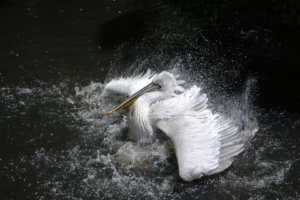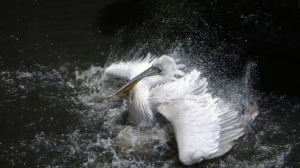Voices from the Divide: Personal Stories from the Kosovo War
The Kosovo War, fought from 1998 to 1999, was one of the most significant and harrowing conflicts in the Balkans in late 20th century. This violent struggle was marked by ethnic tensions, atrocities, and a struggle for independence that continues to shape the socio-political landscape of the region today. This article aims to share personal stories that reflect the complexities of the conflict, highlighting voices from diverse backgrounds, each with their own narratives of suffering, resilience, and hope.
Historical Context
To understand the Kosovo War, it’s essential to delve into the historical tensions between Serbs and Albanians. Ethnic Albanians made up about 90% of Kosovo’s population, while the region held deep historical significance for Serbs. The tensions had been simmering for decades, exacerbated by the disintegration of Yugoslavia in the 1990s. Different national identities and aspirations led to increased hostilities, which culminated in war.
Ethnic Divides and Early Conflicts
In the early 1980s, as nationalism surged across Yugoslavia, Kosovo became a flashpoint. The 1989 revocation of Kosovo’s autonomy led to widespread protests and unrest. Each community felt threatened, leading to retaliatory acts that resulted in violent clashes long before the war.
The Prelude to War
In interviews with survivors, many recount this worsening atmosphere of fear and mistrust. Fatime, an ethnic Albanian woman, described her experiences, saying, “We felt as though we were walking on a tightrope. One wrong move, one wrong word, and everything could explode.”
Simultaneously, Marko, a Serbian man, recalled, “I see how my friends were turned against each other. The propaganda was relentless. We were taught to fear the other side.” These sentiments underline the psychological toll years of tension inflicted on communities that once coexisted.
Outbreak of the Kosovo War
The conflict officially escalated in March 1998, with violence intensifying rapidly. The Kosovo Liberation Army (KLA), a guerrilla group advocating for the rights of ethnic Albanians, clashed with the Yugoslav military. The Yugoslav forces responded with brutal crackdowns on civilians, committed numerous atrocities, and displaced large numbers of people. Reports of mass executions, rapes, and ethnic cleansing emerged, drawing international condemnation.
The Impact on Civilian Life
As the war progressed, the fabric of daily life in Kosovo tore apart. Individuals from both ethnic backgrounds found themselves caught in the turmoil. Lejla, an Albanian nurse, recounted her harrowing experiences during the onslaught. “Every day, we received new patients with terrible injuries. We had limited supplies and no safety. Many came in barely alive. I knew their faces—neighbors and friends.”
Conversely, Rade, a Serbian farmer, described how his community was often viewed with suspicion. “We were not all guilty, but the war made us all targets. We buried our friendships and turned against each other out of fear.”
Displacement and Refugee Crisis
The humanitarian crisis escalated as hundreds of thousands of people fled their homes. The UN estimated that around 1.5 million people were displaced by the end of the conflict. Refugee camps sprang up across neighboring Albania and Macedonia, overcrowded and under-resourced.
Personal Stories of Displacement
Arben, a refugee from Gjakova, spoke about his family’s harrowing escape. “We left everything behind—our home, our memories. We walked for days, not knowing where we were heading. The fear of being caught was overwhelming.” In contrast, Milena, a Serbian woman who fled her village due to rising tensions, said, “I never thought I would have to leave. We packed a bag and ran. But we couldn’t take the memories with us.”
The Role of International Intervention
In response to the escalating violence, NATO intervened in March 1999 without UN approval, launching a bombing campaign against Yugoslav targets. This controversial decision has been debated extensively, with some arguing it halted severe humanitarian abuses while others lamented its legality and the collateral damage caused.
Voices on NATO’s Campaign
Esra, an ethnic Albanian, expressed relief, saying, “When NATO came in, we felt a glimmer of hope. It was a turning point for us.” On the other hand, Igor, a Serb, felt differently: “NATO’s bombing destroyed homes and lives. We became targets in a war we didn’t want. That wasn’t justice.”
Post-war Kosovo: A Fragile Peace
The war ended in June 1999, but the scars it left were deep. Kosovo was placed under UN administration, and in 2008, it declared independence from Serbia, a move that remains disputed.
Reconciliation Efforts
Efforts for reconciliation have been fraught with difficulty. Initiatives aimed at bridging the gap between the two communities have been met with varying degrees of success. Workshops, community gatherings, and joint projects have emerged, but mistrust lingers.
Sanja, a teacher in a joint school, noted, “We try to teach our students about both communities, but it’s hard. The younger generation wants to move forward, but the stories of the past often overshadow us.”
The Ongoing Struggle for Identity
Kosovo’s identity remains a contested topic. Many citizens identify as Kosovars, while others hold onto their ethnic identities. The political uncertainty and social divides continue to challenge the region’s stability.
The Voice of Youth
To understand the future, listening to the youth’s perspective is crucial. Emina, an Albanian student, expressed hope for a unified future: “Our parents have their stories, but we want a new narrative. We want to build a Kosovo that is inclusive.” On the contrary, Stefan, a Serbian counterpart, articulated concern: “I worry that younger generations will inherit the animosity. It’s not easy to forget an entire history.”
Conclusion: Weaving Together the Stories
The Kosovo War’s experience is not singular but a tapestry of multiple narratives and perspectives. Each personal story of loss, survival, and resilience contributes to the broader understanding of the war and its aftermath.
Reflections on the Human Experience
Through the voices of those who lived through it, we can begin to comprehend the true impact of war. As we reflect on these accounts, it is essential to remember that behind statistics and political rhetoric, there are individual lives forever affected by conflict.
Bridging these divides requires more than just dialogues; it necessitates an acknowledgment of the past and an earnest commitment to a shared future. The harrowing tales of Kosovo remind us of the human capacity for both destruction and rebuilding. In understanding these experiences, we foster empathy, break down division, and encourage future generations to craft a more unified narrative for Kosovo.
References
- Balkan Insight. (2020). “Witnesses to the Conflict: Kosovo War Stories.”
- International Committee of the Red Cross. (1999). “The Humanitarian Consequences of the Kosovo Conflict.”
- United Nations High Commissioner for Refugees. (1999). “Kosovo’s Refugee Crisis: A Humanitarian Response.”
- NATO. (1999). “Operation Allied Force: A History of the Campaign.”
- Council on Foreign Relations. (2021). “The Future of Kosovo and Serbia’s Relations.”
This article serves as a humble tribute to the courage of survivors and their ongoing journey towards healing and reconciliation. Though the echoes of war still resonate, there is also the sound of hope—a hope that one day, the tales from the divide will turn into stories of a shared future.


























Add Comment